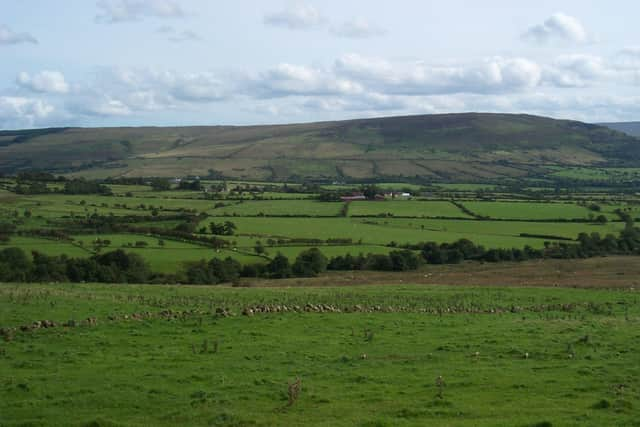AFBI clarifies ‘Soil Nutrient Health Scheme’ soil analysis code G
and live on Freeview channel 276
The SNHS soil sampling service commenced for Zone 1, which covers farm businesses in County Down and parts of Counties Armagh and Antrim, in November 2022.
Most of these farm businesses have now received soil analysis results for some of their fields and AFBI are aware that a few farmers are unsure about the Code G marking on their analysis reports.
Advertisement
Advertisement
Code G does not indicate that AFBI has applied a classification to a field. It is being used as a precaution to make sure farmers are aware of the Environmental Impact Assessment (EIA) (Agriculture) Regulations (Northern Ireland) 2007, around the ploughing or intensification of agricultural activity on land which has not been cultivated within the last 15 years.


When Zone 1 farmers registered for the SNHS they selected crop codes.
Some of these codes (grazing, extensive, woodland etc) have been flagged as fields possibly falling under EIA Regulations and have been allocated a Code G.
The term ‘extensive grazing’ covers a broad spectrum of land use. As a general guide, if farmers have carried out any of the following actions within the last 15 years;
Advertisement
Advertisement
Ploughing; digging; sub-surface harrowing; discing or rotavating; draining land or modifying water courses; spreading soil or other materials; applying organic or inorganic fertiliser or soil improvers; land reclamation; sowing seed; clearing existing vegetation either physically or using herbicides,
they should be able to manage the nutrient status of the field, according to their soil analysis results. However, if none of the above operations have been carried out in a field with a G code against it during the past 15 years, or if the field appears to be a wildlife habitat, further advice should be sought from AFBI or DAERA before any nutrient applications or cultivation work are undertaken to avoid breaching EIA Regulations.
CAFRE training is available at www.cafre.ac.uk/snhs-training to provide farm businesses with help interpreting the soil analysis results and fertiliser and lime recommendations.
Any farm businesses that are unsure about their analysis results can also contact the AFBI SNHS helpdesk on 028 9025 5212 or E: [email protected]